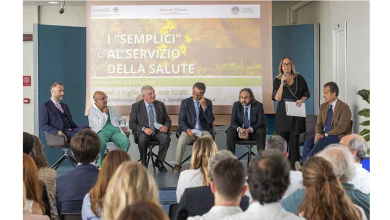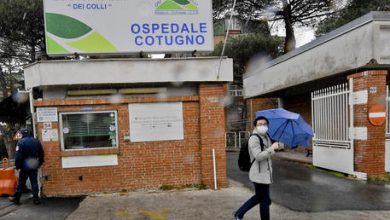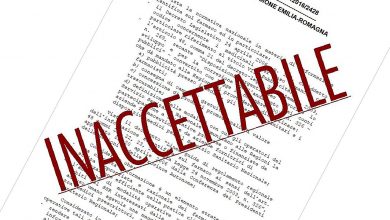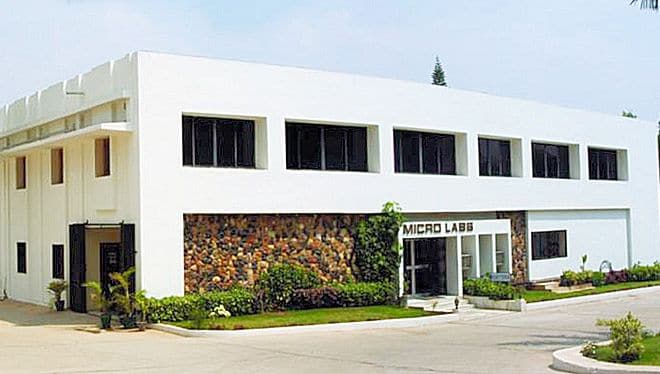
EMA recommends drug suspension due to unreliable studies from Micro Therapeutic Research Labs
EMA – Press Release – 03/24/2017
 The European Medicines Agency (EMA) has recommended the suspension of a number of nationally approved medicines for which studies of bioequivalence were conducted by Micro Therapeutic Research Labs at two sites in India. The studies of biequivalence are usually the basis for the approval of generic drugs
The European Medicines Agency (EMA) has recommended the suspension of a number of nationally approved medicines for which studies of bioequivalence were conducted by Micro Therapeutic Research Labs at two sites in India. The studies of biequivalence are usually the basis for the approval of generic drugs
L' list of recommended medications for discontinuation can be found here . Suspensions can be lifted once alternative data has been established bioequivalence.
d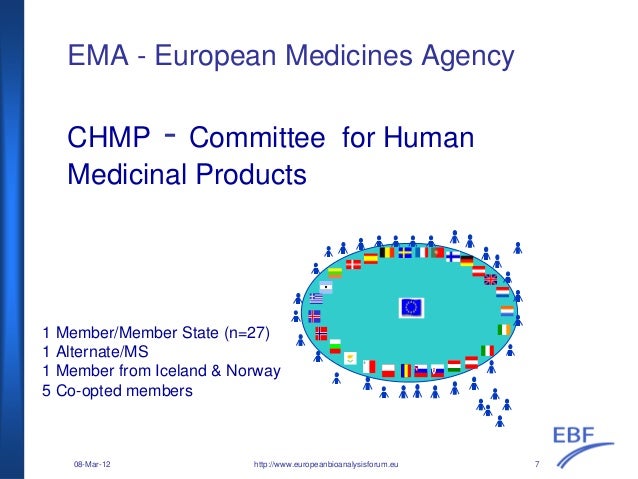 Alternative support data have already been provided for many of the drugs reviewed. Therefore, the CHMP has recommended that these drugs can remain on the market. L' list of recommended drugs to stay on the market is available here .
Alternative support data have already been provided for many of the drugs reviewed. Therefore, the CHMP has recommended that these drugs can remain on the market. L' list of recommended drugs to stay on the market is available here .
The Agency also recommended that medicines not yet authorized but which are being evaluated based on studies of bioequivalence carried out by these Indian sites should not be allowed until the bioequivalence is not demonstrated by alternative data.
Micro Therapeutic Research Labs is a contract research organization (CRO), which conducts portions of analytical and clinical studies of bioequivalence, some of which are used to support themarketing authorisation of medicines in the EU.
The review of the drugs studied by Micro Therapeutic Research Labs was initiated after inspections carried out by the Austrian and Dutch authorities in February 2016 to verify compliance of good clinical practice (GCP). Inspections identified several concerns at the Indian company's sites regarding misrepresentation of study data and deficiencies in documentation and data management.
The review carried out by Committee for Medicinal Products for Human Use (CHMP extension) of EMA, concluded that data from studies conducted at Indian sites between June 2012 and June 2016 are unreliable and cannot be accepted as a basis for a marketing authorisation in the EU. However, there is no evidence of harm or lack of efficacy of medicines licensed and under evaluation in Europe, based on studies at Indian sites.
Some of the medicines that have been advised for suspension may be of critical importance (e.g. due to a lack of available alternatives) in some EU Member States. Therefore national authorities can temporarily postpone the suspension in the interest of patients. Member States also have to decide whether recalls of the affected medicines are necessary in their territories.
There CHMP recommendation regarding these medicines will now be sent to the European Commission for a legally binding decision valid throughout the EU.
Information for patients and healthcare professionals
- A number of medicines in use in the EU have been approved based on studies conducted at two Micro Therapeutic Research Labs sites in India. The studies are unreliable due to problems in the way data and documents were handled across the sites. As a result, several medicines approved in the EU have been suspended.
- L' list of recommended medications for discontinuation can be found here .
- There is currently no evidence of unanticipated harm or lack of efficacy with any drug approved based on studies conducted at Micro Therapeutic Research Labs.
- Several medicines that have been approved based on studies conducted at Micro Therapeutic Research Labs may remain on the market in the EU. This is because during this review, alternative data were provided for these drugs.
- L' list of recommended drugs to stay on the market can be found here .
- National authorities in the EU will consider how critical medicines recommended for suspension are in their countries and make final decisions on whether to suspend or allow them to remain available, pending new data.
- Patients should continue to take their medications as prescribed and contact their physician if they have any questions or concerns.
Learn more about medications
The review concerns a medicine authorized centrally through EMA (Tadalafil Mylan), as well as medicines authorized by national procedures in EU Member States (including decentralized procedures or of mutual recognition), whose marketing authorisation includes data from studies conducted by Micro Therapeutic Research Labs at two sites in India:
- Micro Therapeutic Research Labs Pvt. Ltd Rajam Bhavanam, No. 6, Kamarajar Salai, Selaiyur, East Tambaram, Chennai-600 059, Tamil Nadu.
- Micro Therapeutics Research Labs, No. 29 A, Krishna Madhuravanam, Vellokinar Pirivu, Thudiyalur, Coimbatore-641 029, Tamil Nadu.
The review also included current medications of authorization to release using study data from these sites.
More about the procedure
The review was initiated on December 15, 2016 by several Medicines Regulatory Agencies – Austria, Bulgaria, Croatia, Denmark, Estonia, Finland, Germany, Hungary, Iceland, Latvia, Netherlands, Norway, Romania, Slovakia, Slovenia, Spain , Sweden and the United Kingdom – pursuant toArticle 31 of Directive 2001/83 / EC .
The review was carried out by Committee for Medicinal Products for Human Use ( CHMP extension ), responsible for all matters concerning medicinal products for human use, which gave its opinion. The opinion of CHMP extension it will now be forwarded to the European Commission, which will issue a final legally binding decision applicable in each of the EU member states.
__________________________________________
From Aboutpharma dated 03/27/2017. Therefore, Indian companies dealing with bioequivalence are back in the limelight. In the February issue of AboutPharma and Medical Devices, the topic was explored by describing a disturbing scenario. Numerous Cros (Contract Research Organizations) active in India and China have been accused of having provided clinical results that are deficient or even without scientific basis because the test data was incomplete when not manipulated.
In 2011 “data integrity” was mentioned in the 43% of the cases in the warning letters (letters of warning from the regulatory bodies) of which a 31% Indian and Chinese. In 2015, the percentage rose to 78% and of these letters 70% was sent to the Far East. The 40% of the generics circulating in the American market comes from India which, together with China, controls the 80% of the production of generics in the world. Numbers that make you think, but it would be alarming. Often these data are "manipulated" due to the simple fact that they do not perfectly meet the requirements of bioequivalence, thus not constituting an actual danger to the health of patients.
Related news: Ema Suspensions: Assogenerici, "No product for sale in Italy"
AIFA. Suspended Indian generics Lovastatin, Simvastatin
AIFA. Data Integrity: The perspective of the Regulatory Authority
The EU bans 700 generic medicines produced in India
Ed: Equivalent drugs, better known as generics, at the time of a patent expiration contribute to the reduction of the price of the branded drug, can offer some savings for patients and could incentivize pharmaceutical companies to do research to commercialize new drugs and as such with patent protection.
That said, the system in force in Italy leaves open some doubts. Among many of these doubts, we point out at least two here. The Italian generics market is dominated by an oligopoly of 5 companies and the insistent state propaganda is free advertising for these companies, to the detriment of the more than 200 companies present in Italy. It should be noted that the relative higher cost of branded drugs weighs on the citizen and not on the State, so there is no savings for the NHS coffers.
Furthermore, beyond the propaganda that tells us that the safety of these drugs is controlled by the regulatory authorities, in reality bioequivalence studies do not use clinical efficacy parameters and studies are carried out to ascertain the close similarity between the equivalent drug and the originator self-produced and self-certified that analyze the bioavailability of the drug, a parameter that indicates how quickly and in what quantity the active ingredient is distributed (and is therefore made available) in the body.
If the self-certified bioavailability of the equivalent drug has the same values (±20%) than the original, then it can be said that the two drugs are bioequivalent. To give greater value to self-certification, active ingredients from Asian countries are imported into a European country and then imported into Italy with the European imprimatur. Based on these self-produced studies, these generics are authorized for marketing. Thus damaging the Italian quality producers of principles.
The checks are carried out a posteriori, on reports or inspections in the places of production or where the bioequivalence studies are carried out. The case that the EMA has reported is an example of this.



